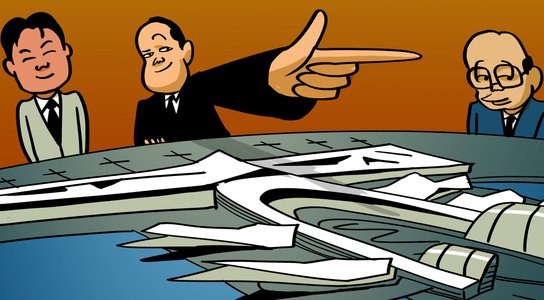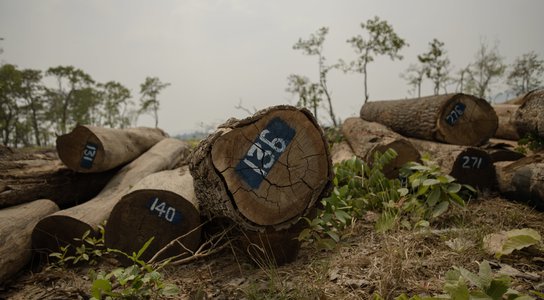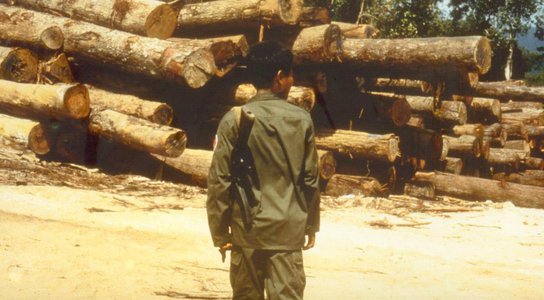The Cambodia Democracy Act is a major step in holding those bent on destroying Cambodia’s democracy to account, says Global Witness, following the successful passage of the Act in the US House on Wednesday evening.
The anti-corruption campaign group is calling on the US Senate to follow suit, and to include on any sanctions lists the members of Cambodia’s corrupt business elite who have helped keep Prime Minister Hun Sen in power for 33 years through a corrupt system of patronage and state looting.
“Cambodia’s sham election on Sunday is the logical conclusion of a decades-long power grab by the ruling elite,” said Global Witness campaigner Emma Burnett.
“Under Hun Sen’s rule, a small group of politicians, military chiefs and business tycoons have looted the state to enrich themselves and consolidate their power. This has come at phenomenal cost to the Cambodian people, many of whom have been beaten, arrested and even killed for standing in the way.
“The Cambodia Democracy Act is the first big move towards tackling the damage that has been done to Cambodian people – but the Senate must now follow suit and hold to account all members of the elite who have driven this corruption and exploitation.”
Global Witness last week launched a campaign to expose the Cambodian tycoons who have featured consistently in its investigations for their role in the system of grand corruption that has taken root during Hun Sen’s reign.
Published on Facebook in an effort to dodge a fierce government crackdown on free reporting, the campaign calls for the inclusion of these individuals on US sanctions lists - for having bankrolled the ruling party, for looting the state of its natural wealth, and for the gross human rights abuses carried out on behalf of their companies.
“Any international efforts to return freedoms and democracy to Cambodia must also take aim at those who bankroll his regime,” said Burnett.
“These individuals have ensured that money generated from Cambodia’s strong economic growth over the past twenty years has made a small elite group rich at the expense of the poor. Meanwhile hundreds of thousands of Cambodians have suffered mass forced evictions, many of them extremely violent.”
In a statement yesterday, the US House named the individuals it would like to see sanctioned, which included 15 high-ranking politicians and security chiefs, as well as Hun Sen’s eldest daughter Hun Mana, and Sok Puthyvuth, who is the son of former Deputy Prime Minister Sok An, married to Hun Sen’s daughter Hun Maly, and the CEO of SOMA Group.
As Global Witness’ recent Facebook campaign showed, SOMA Group was part of the team expanding Phnom Penh Airport. Local residents were told that their homes would all be destroyed but that they wouldn’t be compensated. Eight people were arrested after painting SOS signs on their roofs - they hoped that US President Obama would see as he flew into Cambodia for a summit.
Global Witness’ 2016 Hostile Takeover investigation revealed how Hun Sen’s daughter Hun Mana had business interests in 22 companies, with listed share capital of more than US$66 million. She was found to be one of only two media moguls in Cambodia to have holdings across radio, TV and newspapers, including 100% of the shares of media company Bayon Media Hight System, which is considered to be one of the leading mouthpieces of Hun Sen’s Cambodia People’s Party.
“Hun Mana and Sok Puthyvuth are excellent examples of business tycoons who have profited hugely from Cambodia’s corrupt system of patronage,” said Burnett. “They are among many businesspeople who should be punished for their role in gaming Cambodian politics and the economy in their favour.”
Among the tycoons Global Witness would like to see sanctioned are:
Senator Mong Reththy, who Global Witness has linked to a massive illegal logging racket and a sand dredging scandal worth millions of dollars. When allegations surfaced that the senator was also involved in marijuana trafficking, the prime minister said that anyone attempting to arrest him should “wear a steel helmet”.
Senator Ly Yong Phat, whose sugar company operations led to some of the most violent land grabbing Cambodia has seen this century, with thousands of people thrown off their land. Sugar is just one industry in his huge business portfolio, which spans casinos, the media, infrastructure and more.
Try Pheap, previously Hun Sen’s personal advisor, who Global Witness found to be at the helm of a multi-million dollar timber smuggling operation that relied on the complicity of officials from government, the military, police and customs. His company was even granted exclusive rights to buy illegal timber that was seized by the authorities, to sell on at a profit.
Senator Lao Meng Khin, who owns Shukaku, the company behind the infamous Boeung Kak lake evictions. Residents who took a stand have been beaten, arrested and jailed by the authorities. Another of his companies, Pheapimex, holds Cambodia’s biggest land concession, which is 33 times bigger than the legal limit introduced shortly after it was granted.
/ ENDS
You might also like
-
Report Who profits from the death of Cambodia’s democracy?
As Cambodians head to the polls, Global Witness exposes an elusive club of politically exposed tycoons set to profit from the country's sham election
-
Campaign Cambodia
Cambodia offers a stark illustration of how natural resources can be a curse, not a blessing, to a country’s population.
-
Briefing Global Witness and Cambodia – key moments
In early 1995, Global Witness carried out its first investigations in Cambodia and Thailand, exposing how the illegal timber trade across the border was bankrolling the war effort of the genocidal Khmer Rouge.